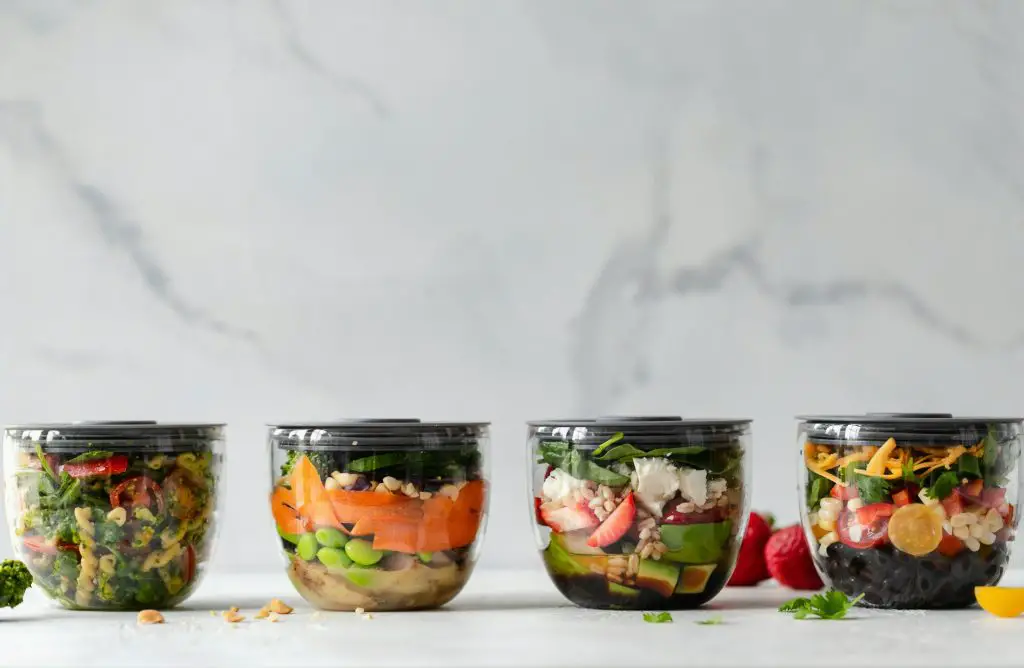Planning a meal for a week can be a rewarding process that saves you time, money, and stress while ensuring that you and your family enjoy nutritious and delicious meals. Here’s a step-by-step guide to help you efficiently plan your weekly meals.
Assess Your Week
Before you start planning, take a look at your weekly schedule. Consider work, school, social events, and any other commitments you have. This helps in determining the number of meals you need to prepare, which days require quicker meals, and which days you can spend more time cooking.
Gather Recipes
Compile a list of recipes that you and your family enjoy. Consider a variety of dishes that include vegetables, proteins, and grains to ensure balanced nutrition. It’s helpful to categorize recipes by cooking time or method (e.g., slow-cooker, quick stir-fries, oven dishes) to make selection easier based on your daily schedule.
Plan for Variety
To keep meals interesting, plan for variety throughout the week. Mix cuisines, flavors, and cooking methods. For example, if you have pasta one night, consider a stir-fry or salad the next. Remember to include some vegetarian meals if possible, to increase your intake of fruits and vegetables.
Make a Calendar
Use a calendar or meal planning app to assign each meal to a day of the week. Be sure to account for leftovers; cooking a larger meal one evening can provide a quick and easy dinner the following night. Also, pencil in a “flex day” for eating out or ordering in, giving yourself a break from cooking.
Create a Shopping List
Once your meals are planned, list all the ingredients you’ll need for the week. Organize your list by store sections (produce, dairy, meats, pantry items) to make your shopping trip more efficient. Check your pantry, fridge, and freezer before you go to avoid buying items you already have.
Shop Wisely
When shopping, stick to your list to avoid impulse buys that can inflate your budget and lead to waste. Consider buying in bulk for items you use frequently, and look for sales or discounts on pricier ingredients.
Prep in Advance
To save time during the week, do as much meal prep as possible in advance. This could include washing and chopping vegetables, marinating proteins, or even cooking some components of meals ahead of time. Store prepped ingredients in clear containers in the fridge for easy access.
Be Flexible
Even the best-laid plans can change. Be prepared to swap meals around based on how your week unfolds or if you find that certain ingredients need to be used sooner than expected. Flexibility can help reduce waste and keep mealtime stress-free.
Involve Your Family
Make meal planning a family affair. Involve family members in choosing meals, shopping, and cooking. This not only makes the process more enjoyable but also teaches valuable skills and encourages healthier eating habits.
Reflect and Adjust
At the end of the week, reflect on what worked and what didn’t. Were there meals that took longer than expected? Were there leftovers that went uneaten? Use this feedback to adjust your planning process for the next week.
Meal planning is a skill that improves with practice. Over time, you’ll find a rhythm and methods that work best for you, making mealtime a more enjoyable and less stressful part of your day.
Embrace Technology
In today’s digital age, there are numerous apps and online tools designed to simplify the meal planning process. These tools can help you organize recipes, generate shopping lists, and even suggest meals based on the ingredients you have on hand. Experiment with a few to find one that suits your needs and preferences.
Incorporate Healthy Snacks
When planning your meals, don’t forget to include healthy snacks. Snacks can play a crucial role in maintaining energy levels and preventing overeating at meal times. Choose snacks that are high in protein and fiber, such as nuts, yogurt, fruit, or whole-grain crackers with cheese.
Plan for Portion Control
If you’re mindful of portion sizes, planning can help you manage this aspect as well. Cook with the intention of having exactly enough food to satisfy your family without overdoing it. If you do cook in larger quantities, plan for how you’ll use the leftovers, whether it’s for lunches the next day or repurposed into a different meal.
Sustainability Considerations
Meal planning is also an excellent opportunity to think about sustainability. Plan meals that make use of seasonal produce and locally sourced ingredients to reduce your carbon footprint. Also, consider how you can minimize food waste by using up perishable items before they spoil and repurposing leftovers creatively.
Adjust for Dietary Needs
If you or a family member has specific dietary needs or goals, meal planning becomes even more crucial. It ensures that you have the necessary ingredients to create balanced meals that meet those dietary requirements. Whether it’s low-carb, gluten-free, vegan, or any other specialized diet, planning ahead makes it easier to stick to your goals.
Make Use of Batch Cooking
Batch cooking, or preparing multiple servings of a dish at once, can be a game-changer for meal planning. Dedicate a day to cooking larger quantities of a few dishes that can be stored and easily reheated throughout the week. This approach is particularly useful for busy weeks when you know time will be tight.
Keep It Simple
While it’s nice to try new and complex recipes, don’t underestimate the power of simplicity in meal planning. Sometimes, the best meals are the easiest ones to prepare. Dishes that require fewer ingredients and less time can be just as satisfying and are often a hit with the family.
Build a Recipe Database
As you experiment with meal planning, you’ll discover recipes that are hits and those that are misses. Keep a record of the recipes your family loves, as this will make future meal planning sessions quicker and easier. Over time, you’ll build a personal recipe database that you can pull from with confidence.
Celebrate Successes
Finally, celebrate your meal planning successes, no matter how small. Whether it’s sticking to your plan, trying a new recipe that becomes a family favorite, or just managing to have home-cooked meals on the table despite a hectic week, acknowledge the effort it takes. This positive reinforcement can motivate you to continue meal planning and refining your process.
Meal planning is a dynamic process that evolves with your lifestyle and preferences. By staying flexible, engaging with your family, and embracing the journey, you can transform mealtime into an enjoyable and stress-free experience that supports your health and well-being.
Leverage Leftovers Creatively
One of the keys to successful meal planning is being creative with leftovers. Instead of serving the exact same dish multiple times, think of ways to transform leftovers into new, exciting meals. For example, roast chicken from one night can become chicken tacos or a hearty chicken salad the next day. This not only reduces waste but also keeps the menu interesting.
Invest in Quality Containers
Good storage solutions are essential for meal planning, especially when you’re prepping ingredients or meals in advance. Invest in a set of high-quality, airtight containers in various sizes. Glass containers are great for storing and reheating meals, and they don’t retain odors or stains like plastic can. Having a variety of containers on hand makes it easier to store prepped ingredients and leftovers properly, keeping them fresh longer.
Embrace Theme Nights
To make meal planning even more straightforward, consider assigning theme nights to each day of the week, such as Meatless Monday, Taco Tuesday, or Stir-Fry Friday. This approach can help narrow down your meal choices, making the planning process faster and adding a fun element to mealtime. Themes can be flexible to accommodate your schedule and preferences.
Include Breakfast and Lunch
While dinner often takes center stage in meal planning, don’t forget about breakfast and lunch. Planning for all three meals ensures that you’re covered for the entire day and can help you avoid unhealthy or expensive last-minute choices. Prep breakfast items that can be grabbed on the go, like overnight oats or muffins, and plan for easy-to-assemble lunches like salads or wraps.
Set Aside Time for Planning
Consistency is crucial for meal planning success. Set aside a specific time each week to sit down and plan your meals. This could be a quiet Sunday morning or any other time that works for you. Use this time to browse recipes, check your pantry and fridge, and make your shopping list. Making meal planning a regular part of your routine ensures it becomes a habit rather than a chore.
Plan for Seasonal Changes
As seasons change, so do our meal preferences. Incorporate seasonal fruits and vegetables into your meal planning to take advantage of the freshest ingredients available. Seasonal cooking not only offers the best flavors but can also be more cost-effective. Plus, it’s a great way to introduce variety into your diet and explore new recipes.
Learn to Love the Freezer
Your freezer is a valuable ally in meal planning. It allows you to store batch-cooked meals, freeze seasonal produce, and keep extra ingredients on hand. Freezing meals or meal components can be a lifesaver during busy weeks or when you don’t feel like cooking. Just remember to label everything with the date and contents to keep track of what you have.
Stay Inspired
Finally, to keep meal planning exciting, continuously seek out new recipes and ideas. Follow food blogs, subscribe to cooking magazines, or swap recipes with friends to get inspired. Trying new dishes can keep your meal plan fresh and exciting, and you might just discover some new family favorites along the way.
Meal planning is a journey that can lead to healthier eating habits, reduced food waste, and more enjoyable meal times. By applying these strategies and tips, you can master the art of meal planning, making it a rewarding part of your weekly routine.




